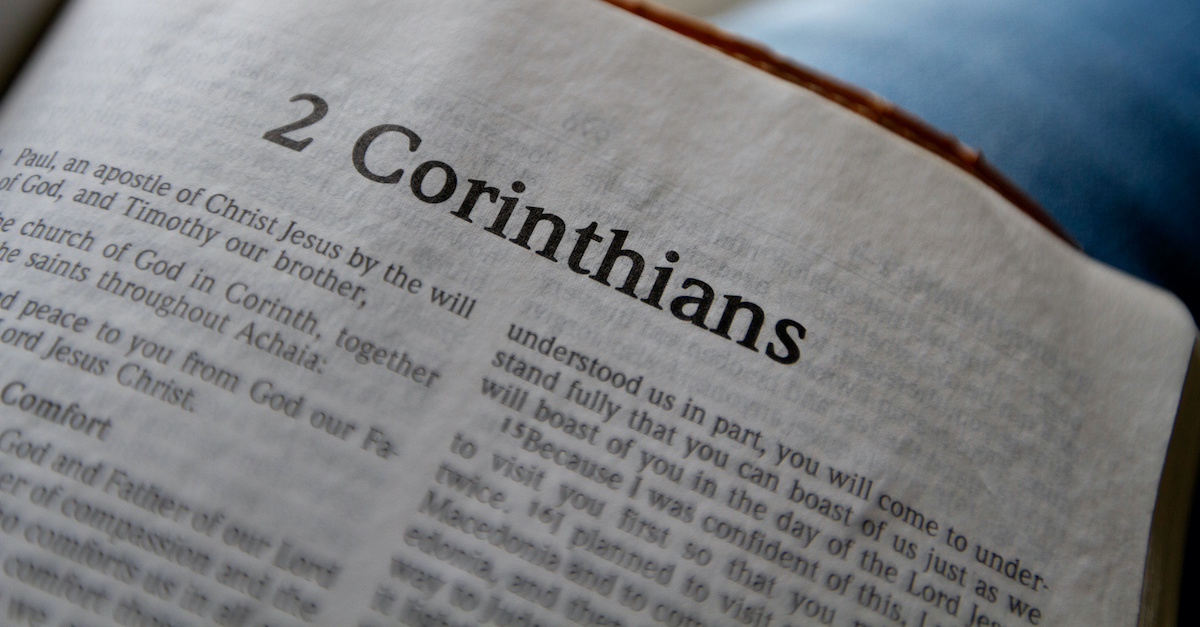
Thanks to the miracle of Jesus, humanity can enjoy a life free from the ramifications of sin. And with our freedom, we have a very specific calling.
“Now the Lord is the Spirit, and where the Spirit of the Lord is, there is freedom.” – 2 Corinthians 3:17
Hearing the word freedom is like hearing the words “love” or “interesting.” At face-value these words are vague and can often mean anything. For some, the idea of freedom may embody an end to slavery, a sense of patriotism, or overcoming addiction.
What comes to mind when you hear the word freedom? Likely some of the previous ideas and more. While the word “freedom” by itself can take on many forms, when you connect it to God, it holds a much more specific meaning.
God is God, yesterday, today, and tomorrow (Hebrews 13:8). God is not simply what we want him to be. In Paul’s address to the Corinthian church, he makes a connection that freedom is directly linked to God. In this way, freedom is defined by God. And more specifically, by the location of his spirit. Yet, what exactly did Paul mean?
With a closer look into this powerful phrase, we will explore what Paul meant by his words, the modern day implications, and whether or not we as believers can believe this verse.
Photo Credit: © Unsplash/Mohamed Nohassi

The Bigger Story and Context of 2 Corinthians 3:17
Paul makes repeat references to “the Spirit” in this chapter of Corinthians. As with his other letters, Paul is admonishing the church, encouraging them to see ministry, and also themselves, differently.
He makes references to the believers of Old Testament Christianity, the Israelites, who were led by Moses. The glory of God then is nothing compared to the newfound glory established with Jesus (2 Corinthians 3:10).
Followers of Moses received, in part, their faith in writing, as “letters on stones” (2 Corinthians 3:7). But Paul wants the Corinthian church to have faith indicated by the Spirit, not by writing.
“We are not like Moses, who used to put a veil over his face to prevent the Israelites from gazing steadily until the end of the glory of what was being set aside, but their minds were hardened.
“For to this day, at the reading of the old covenant, the same veil remains; it is not lifted, because it is set aside only in Christ.”
For Paul, being a follower of Christ, is less about written credentials, and more about an upheld faith. A faith more hidden. A faith where people believe without seeing, and without needing to be reminded by other Christians or have written reminders. They simply know they believe.
And nothing needs to be written for nonbelievers to recognize the Christianity of others. The spirit of a believer will reveal their faith.
In that mode of belief is where the idea of freedom arises. By upholding faith in our hearts, we bring the Spirit of God within us. When we do that, we are living in a way that glorifies Christ.
Instead of wearing a veil like the Israelites once did, we look into a mirror and see ourselves reflected in Christ. We become perfected more and more daily as our faith grows.
Photo Credit: © Sparrowstock

Other Appearances of Freedom in the Bible
With a greater understanding of the context in which Paul wrote his powerful words, another question arises, what constitutes freedom?
The word freedom makes a number of direct and indirect appearances in the Bible. Each time there are different scenarios featuring different characters. What they all have in common is the presence of God.
One appearance of the idea of freedom in the physical sense is when God’s chosen people are taken from bondage in Egypt.
Freedom from Physical Slavery
“And moreover I have heard the groaning of the children of Israel, whom the Egyptians keep in bondage; and I have remembered my covenant.” (Exodus 6:9)
God took his people who were slaves and brought them into freedom, eventually guiding them to the Promised Land. This end to their slavery would not have been possible without the Lord’s presence.
Moreover, they utilized their faith to get them from one location to the next. In the many seasons where they lost faith, and felt distanced from God, they became tied to a different form of bondage: despair, idolatry, and other sins. Sometimes they were conquered by other tribes.
In the moments where the Israelites reconnected with God, they again saw themselves freed time and time again.
Freedom from Spiritual Bondage
Another usage of freedom that is less physical and more spiritual comes from the freedom granted by Jesus to those who believe.
“For freedom did Christ set us free: stand fast therefore, and be not entangled again in a yoke of bondage.” (Galatians 5:1)
The gift Jesus grants is freedom from sin. Believers do not have to live their lives tied to sin and can instead call out to Jesus. Again, God’s presence is required for freedom.
The Bible talks about the forgiveness of sin that comes through faith and repentance. Jesus’ sacrifice freed us from the destined outcome of sin, which is death (Romans 6:23).
In both direct and indirect appearances of freedom, we can ascertain that freedom comes through faith in God. When we believe, God’s presence is so near as to be within us. Guiding us away from obstacles that would otherwise weigh us down.
Photo Credit: © Getty Images/manopjk

How to Embrace Freedom Today
Now, what does freedom mean for Christian believers today?
Slavery is not common in most places in the world, though sin is still a part of all human life.
Thanks to the miracle of Jesus, humanity can enjoy a life free from the ramifications of sin. And with our freedom, we have a very specific calling.
“For so is the will of God, that by well-doing ye should put to silence the ignorance of foolish men: as free, and not using your freedom for a cloak of wickedness, but as bondservants of God. Honor all men. Love the brotherhood. Fear God. Honor the king.” (1 Peter 2:15-17)
We can conclude that freedom does come at a cost, and that was paid by Christ on the cross. In turn, we gain his reward by simply believing, turning from the sin that trapped us before, and leaning on God’s spirit to guide us into a life of true freedom.
By believing in God, choosing nearness to him over sin, we can exist in a sinful world without becoming trapped in it. We can thrive out in the wilderness knowing that God will eventually lead us to another promised land—Heaven.
Photo Credit: © Getty Images/skyNext

Get in touch with him at aarondanthony.com and check out his debut short story anthology Honey Dreams on Amazon and Barnes and Noble.
This article is part of our larger resource library of popular Bible verse phrases and quotes. We want to provide easy to read articles that answer your questions about the meaning, origin, and history of specific verses within Scripture's context. It is our hope that these will help you better understand the meaning and purpose of God's Word in relation to your life today.
This Is the Day the Lord Has Made
Iron Sharpens Iron
Blessed Are the Peacemakers
Faith without Works Is Dead
Be Anxious for Nothing






